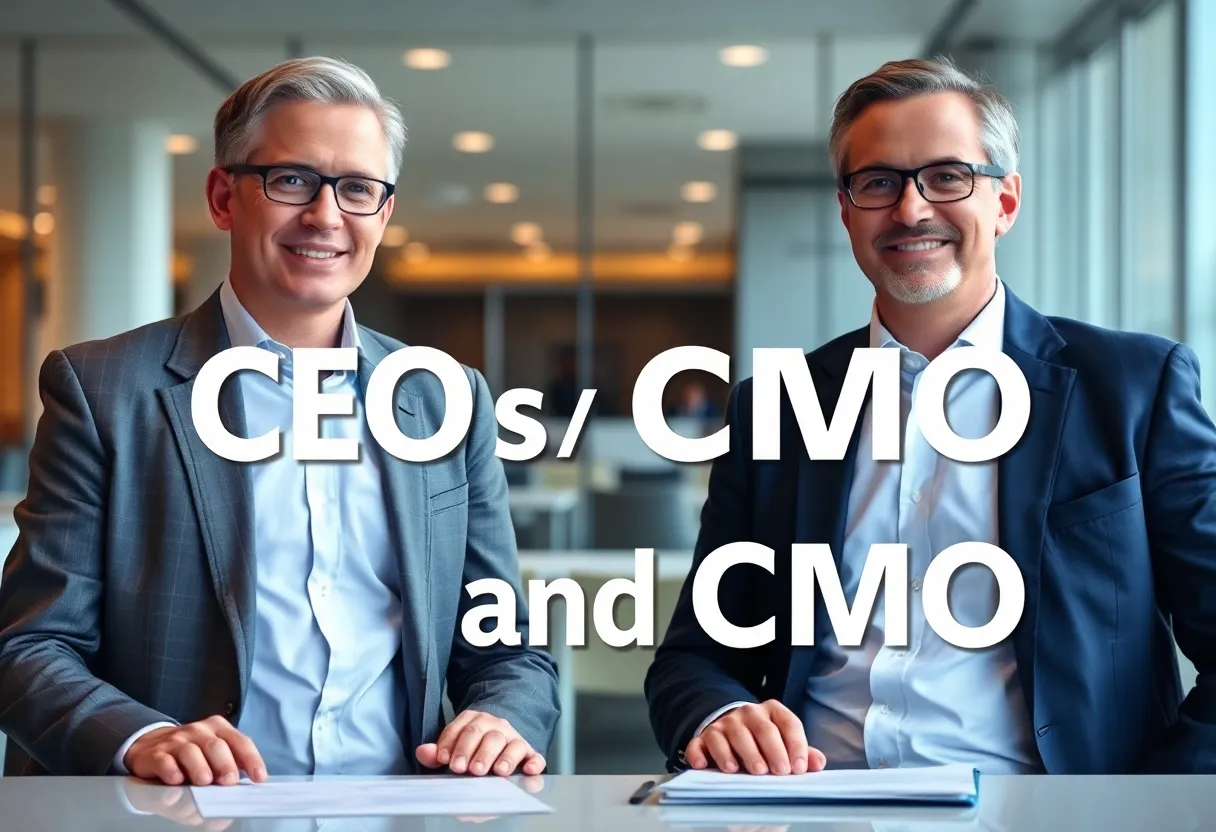News Summary
A recent study reveals a growing trust between CEOs and CMOs, with 76% of CEOs acknowledging their CMOs’ commitment to leadership. However, only 24% rated their performance as ‘A,’ signaling a disconnect between trust and strategic impact. Though more CEOs now consider their CMOs ‘Best in Class,’ innovation and AI integration remain challenges, raising concerns about the future of the CMO role.
New Study Shows Shifts in CEO-CMO Dynamics
It’s always fascinating to see how the roles within corporations evolve, and a recent study sheds light on the relationship between CEOs and CMOs. Interestingly, there’s good news on the horizon. CEOs are starting to trust their CMOs more than ever. In fact, a whopping 76% of CEOs now recognize their CMOs’ commitment to overall company leadership, a significant increase from the 44% in 2021. This is something to celebrate, but the study also uncovers some surprising challenges that may cause us to pause.
Trust on the Rise, but Performance Falters
Alongside increasing trust, there’s a notable rise in the number of CEOs who rate their CMOs as “Best in Class.” This figure jumped from 21% in 2021 to 45% in 2025. Sounds great, right? However, the survey paints a more complicated picture when it comes to business impact. Despite the growing rapport, CMOs appear to be struggling to drive tangible business growth, which is raising eyebrows among corporate leaders.
Only 24% of CEOs awarded their CMOs an “A” grade for overall performance. The numbers show an alarming disconnect: while trust is increasing, the performance ratings for driving business growth have taken a significant hit. Specifically, when it comes to translating company goals into marketing objectives and keeping a thumb on the pulse of the company’s growth, CMO ratings have dropped sharply.
CMOs: Key Players but Often on the Sidelines
As it stands, just 51% of CMOs report being very involved in creating the company’s growth strategy, while 49% focus on executing that strategy. This stat is telling. It suggests that many CMOs are still viewed more as operational support than as key players driving growth. Disturbingly, a significant portion of CEOs (about 50%) believe their CMOs are “playing it safe,” which suggests a hesitancy to innovate and take bold risks.
Innovation seems to be on the decline, too. There’s been a striking 13% drop in the grades awarded for “innovation/generating new ideas” among CMOs this year. CEOs have even reported that the percentage of those they deem “bureaucratic” has increased from 27% to 43%. This suggests a more cautious approach which may not resonate well in an evolving business landscape.
The AI Gap and Future Representation
The situation gets a bit more complicated when we look at AI integration capabilities, where only 41% of CMOs have received top grades. Despite the hype around marketing AI, its adoption is lagging behind other functions, such as Customer Service and Operations. This trend raises questions about where CMOs are focusing their energy and whether it aligns with key business needs.
Interestingly, despite some concerns about strategic impact, about one-third of CEOs believe that their current CMOs could eventually take over as CEO. Conversely, there’s notable hesitation in leadership circles, with 14% of CEOs considering eliminating the CMO role entirely and 30% contemplating changes to their reporting structures. Clearly, the role of the CMO is under scrutiny.
Showing Value in Growth and Profitability
Moreover, only 37% of CEOs rated their marketing capabilities as “Best in Class,” while 63% rated them as “average” or “underperforming.” This indicates that while the CEO-CMO relationship is improving, it’s not translating into success on the ground level. It’s crucial for CMOs to show their value in areas—like growth and profitability—that matter most to their CEOs, lest they fall victim to diminishing priorities.
In conclusion, while the trust and relationships between CEOs and CMOs are undeniably strengthening, there’s a pressing need for CMOs to bridge the gap between trust and their strategic impact. Companies looking to thrive in today’s competitive landscape need bold leaders who can innovate, integrate new technologies, and ultimately drive sustained growth. If CMOs can adapt and showcase their value more effectively, they might just avoid disappointment from their CEOs.
Deeper Dive: News & Info About This Topic
HERE Resources
Additional Resources
- Forbes: CEOs Trust CMOs More, but Perceive Declining Business Impact
- Chief Marketer: Boathouse CEO Survey
- SmartBrief: The Growth Gap
- Marketing Dive: CMO No Man’s Land
- Wikipedia: Chief Marketing Officer








